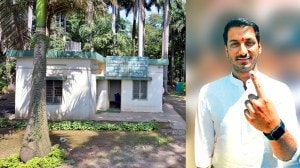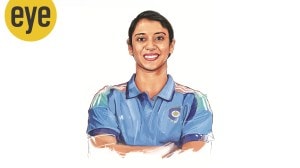New exam: since 2010,IIT Senates kept objecting but HRD ignored
In 2010,the HRD ministry over-ruled his Senate to back the exam
The controversy over the proposed new entrance exam to the Indian Institutes of Technology may seem to have suddenly boiled over with IIT Kanpurs boycott,but a scrutiny of records shows that senior faculty from the IITs had raised several questions about the new exams timing and content as early as in 2010.
But first discussions with the faculty were held as late as in April-May this year,after which the HRD ministry peremptorily brushed aside these objections.
In 2010,the HRD ministry constituted the Damodar Acharya committee Acharya,director of IIT Kharagpur,over-ruled his Senate to back the exam to propose a common engineering exam with weight to Class XII board scores.
* July 9,2010: IIT Kanpur faculty rejected this committees report saying it was short on detail and didnt consult specialists and stakeholders.
* Sept 2011: A new committee,headed by T Ramasami,secretary,Department of Science & Technology,brought another proposal to the IIT Council meeting recommending weight to Class XII marks through a normalization process. Its recommendations were the basis of the new exam: a two-step JEE Main (for screening) and JEE Advanced (for the final IIT merit list) with 40% weight to Class XII scores at the screening stage.
* Endorsed by the councils of IIITs and NITs on November 14,2011 and November 18,2011 respectively and,in principle,by state education ministers on February 22,2012,this proposal was also rejected by most IIT Senates.
* Feb 15,2012: IIT Kanpur Senate said the IIT Councils approval to the proposal was disappointing and that its role was strictly advisory.
* March 12: the HRD ministry set up a core committee to interact with older IITs to reach out to the IIT academic community.
* April 11: The first discussion with the All India IIT Faculty Federation was held and with IIT Senates from April 25 to May 5.
* April 25: IIT Guwahati Senate,broadly agreeing with the proposal,said that no changes to JEE should be brought in before 2014.
* May 2: IIT Delhi Senate submitted that the Ramasami committee recommendations may not be sufficient to reduce stress on students and there was need to strengthen school education. It said that holding a new JEE in 2013 would be unfair to students.
* IIT Roorkee Senate said that the JEE Advanced should be a subjective exam.
* May 3: IIT Khargapur Senate said that a minimum of two years lead time was necessary to examine the effect of board performance on JEE ranking.
* May 5: IIT Bombay Senate said that the changes in examination style should only be implemented from 2014 and that JEE Advanced should be subjective in nature. It also said that it was not feasible to give weight to school board scores as of now.
* IIT Madras,largely in agreement with the government -backed proposal,said that JEE Advanced could see problems in numerical answers.
The IIT Council meeting on May 9 recorded these varied recommendations of IIT Senates and how they wanted the changes to come into effect only in 2014. On May 14,AIIITF wrote to Sibal requesting participation from Senates and AIIITFF at the Council meeting on the exam issue and argued that the Senates views should form the basis for the decisions pertaining to any academic matter,including the admission process.
On May 25,AIIITF met Sibal who told them that while Senate inputs would be taken,(a) final decision will be taken only by the IIT Council which could be different from the IIT Senates majority decisions.
The Federation then wrote to Sibal clearly saying that a 2013 test was not acceptable to all Senates and the plan to hold JEE Advanced as an objective type test was also against the majority decision of holding a subjective JEE Advanced. On May 28,however,Sibal chaired a Joint meeting of Councils of IIIT,IIT and NIT and announced a new test format starting 2013.
For the record,Sibal last week said that the IIT Council had agreed to two points raised by the IIT Senates: ensuring that the test for admission to IITs is controlled by IITs alone and that school board weight should not decide the final merit list for IIT admissions.
The only area where there was variance was that the Senates wanted the new exam format to come into effect only in 2014 while the IIT Council said they were ready to hold it in 2013, the minister had said. Sibal is currently is Washington for the 3rd Indo-US Strategic Dialogue.
Mamata opposes new exam
West Bengal has written to HRD that a common entrance test will put the states IIT aspirants at a disadvantage. It has called for fresh discussions in 2015 after it changes its Class XII syllabus. The new syllabus will help equip our students to perform better at IIT exams, said state Education Minister Bratya Basu. The new syllabus is meant to bridge the gap our students have with those from some other states.



- 01
- 02
- 03
- 04
- 05




























